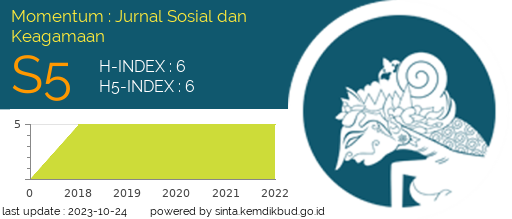Strategi Pengembangan Sumber Daya Manusia (SDM) Aparatur Sipil Negara (ASN) dalam Menjaga Tradisi Inovasi Pelayanan Publik di Kabupaten Banyuwangi
DOI:
https://doi.org/10.58472/momentum.v13i1.86Kata Kunci:
Human Resources Development Strategy, Public Service Innovation, State Prison Apparatus (ASN)Abstrak
Public service is one of society's basic rights as an object of government. Public services in Banyuwangi Regency have progressed because they are considered to be carried out more easily and quickly. One of the things that caused it was the innovation of public services carried out by the state civil apparatus of Banyuwangi Regency. This study describes the strategy for developing the human resources of the state civil apparatus in maintaining the tradition of public service innovation. This study uses a qualitative approach and the results show that the strategy for developing state civil human resources in maintaining the tradition of public service innovation is carried out in several ways including: providing opportunities for ASN to continue their studies according to the field of their regional apparatus organization/OPD, conducting periodic upgrading, assign competent ASNs to learn to replicate in areas where innovations have been successful, foster cooperation to form superteams, and provide rewards to ASNs who have successfully developed public service innovations. From this research, it is interesting to replicate the human resource development strategy for the state civil apparatus as it has been implemented in Banyuwangi Regency. The strategy for developing the human resources of the state civil apparatus can be sustainable by looking at the potential and resources of each region.
Unduhan
Diterbitkan
Cara Mengutip
Terbitan
Bagian
Lisensi
Hak Cipta (c) 2024 MOMENTUM : Jurnal Sosial dan Keagamaan

Artikel ini berlisensiCreative Commons Attribution-ShareAlike 4.0 International License.







